
Enchanting Heights of Mount Kenya National Park
Mount Kenya National Park offers an unforgettable experience for nature lovers and adventure seekers alike. Nestled in the heart of Kenya, this UNESCO World Heritage Site showcases breathtaking landscapes, from alpine moorlands to dense forests. As Africa’s second-highest peak, Mount Kenya provides stunning vistas and a sense of serenity that is hard to match. The park is home to a rich diversity of wildlife, including elephants, buffalos, and various bird species. The diverse habitats also support unique flora, such as the giant groundsel and lobelias, which are found nowhere else on earth. Exploring these natural wonders on guided hikes or safaris is a must for any visitor. In addition to its natural beauty, Mount Kenya National Park holds cultural significance for the local Kikuyu people, who consider the mountain sacred. Visitors can learn about their customs and traditions through community-led tours and cultural experiences, enriching their understanding of this majestic region.
Local tips in Mount Kenya National Park
- Pack warm clothing, as temperatures can drop significantly, especially at higher altitudes.
- Hire a local guide for hiking to ensure safety and gain deeper insight into the park's ecology.
- Visit during the dry seasons (January to February and July to October) for the best hiking conditions.
- Carry sufficient water and snacks, as facilities within the park are limited.
- Respect local customs and traditions, especially when visiting sacred sites.
- Bring a good camera and binoculars to capture the stunning scenery and diverse wildlife.
Enchanting Heights of Mount Kenya National Park
Mount Kenya National Park offers an unforgettable experience for nature lovers and adventure seekers alike. Nestled in the heart of Kenya, this UNESCO World Heritage Site showcases breathtaking landscapes, from alpine moorlands to dense forests. As Africa’s second-highest peak, Mount Kenya provides stunning vistas and a sense of serenity that is hard to match. The park is home to a rich diversity of wildlife, including elephants, buffalos, and various bird species. The diverse habitats also support unique flora, such as the giant groundsel and lobelias, which are found nowhere else on earth. Exploring these natural wonders on guided hikes or safaris is a must for any visitor. In addition to its natural beauty, Mount Kenya National Park holds cultural significance for the local Kikuyu people, who consider the mountain sacred. Visitors can learn about their customs and traditions through community-led tours and cultural experiences, enriching their understanding of this majestic region.
When is the best time to go to Mount Kenya National Park?
Iconic landmarks you can’t miss
Mount Kenya
Explore the majestic Mount Kenya - a breathtaking UNESCO World Heritage Site perfect for adventurers and nature enthusiasts seeking unforgettable experiences.
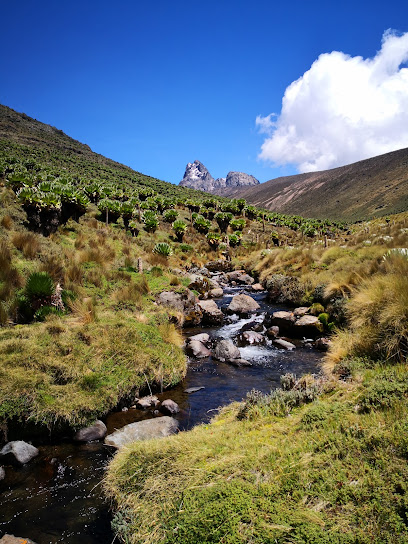
Mount Kenya Naro Moru Park Gate
Discover the wonders of Mount Kenya Naro Moru Park Gate, a paradise for nature lovers and adventure seekers alike, offering unparalleled trekking experiences and stunning landscapes.
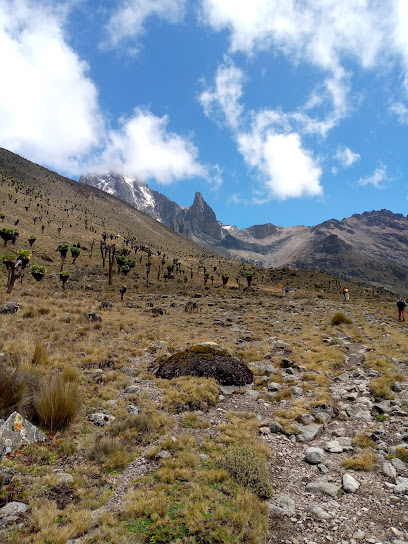
Mt Kenya National Park Gate
Explore the awe-inspiring landscapes and diverse wildlife of Mt. Kenya National Park, a UNESCO World Heritage site in the heart of Kenya.
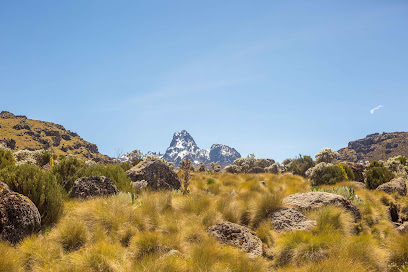
Mount Kenya Wildlife Conservancy
Experience the beauty of wildlife at Mount Kenya Wildlife Conservancy, where conservation meets adventure in the heart of Nanyuki.
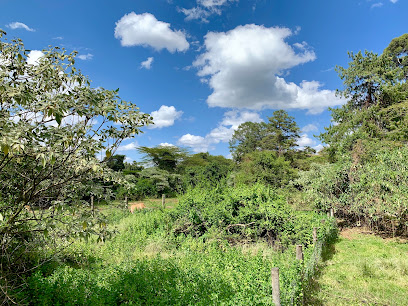
Point Lenana
Explore the breathtaking beauty of Point Lenana, a thrilling hiking destination in Mount Kenya with stunning views and rich biodiversity.
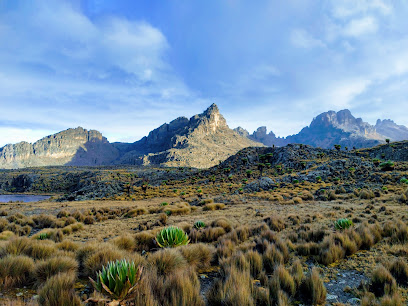
Ragati waterfalls
Discover the breathtaking beauty of Ragati Waterfalls in Nyeri, a serene natural escape perfect for adventure seekers and nature lovers alike.
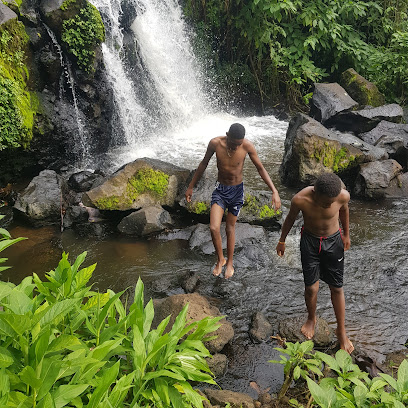
Mt Kenya National Park
Discover the breathtaking landscapes and diverse wildlife of Mt. Kenya National Park, a UNESCO World Heritage Site and adventure paradise.
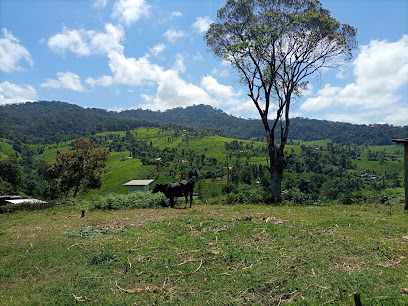
Mawingu Outpost (KWS) Mt. Kenya National Park Nanyuki
Discover the breathtaking beauty of Mawingu Outpost in Mt. Kenya National Park, a hiker's paradise surrounded by stunning landscapes and rich wildlife.
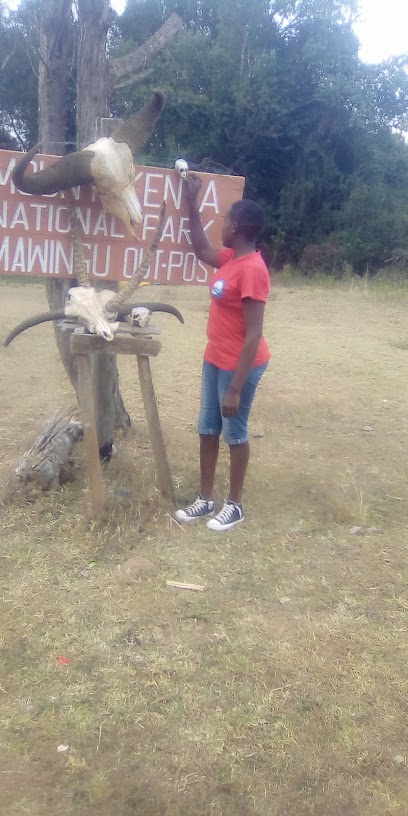
Nelson Mandela Gardens
Discover the serene beauty of Nelson Mandela Gardens in Nanyuki, a peaceful oasis for relaxation, reflection, and breathtaking views of Mount Kenya.
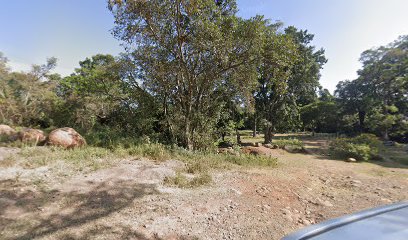
Unmissable attractions to see
Mounting Climbing Porters and Guides Centre
Explore the breathtaking beauty of Mount Kenya with expert guides at the Climbing Porters and Guides Centre in Gitinga Village, a haven for adventurers.
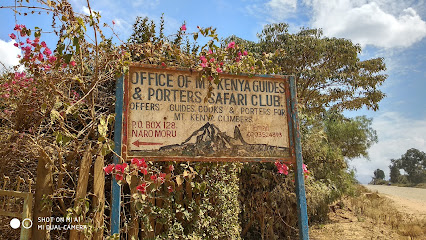
Shiptons campsite Mt kenya
Explore the serene Shiptons Campsite in Mount Kenya National Park, a perfect blend of adventure and natural beauty.
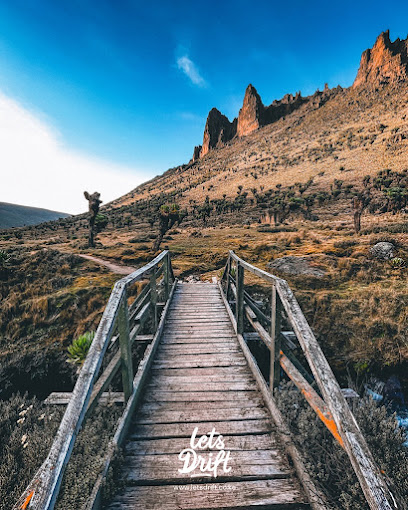
Mt Kenya National Park
Explore the extraordinary landscapes and wildlife of Mt Kenya National Park, a UNESCO World Heritage site and a paradise for adventure seekers.
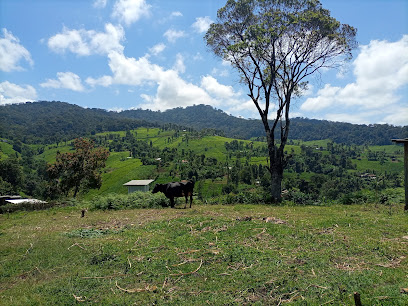
Mawingu Outpost (KWS) Mt. Kenya National Park Nanyuki
Explore the stunning Mawingu Outpost in Mt. Kenya National Park, a premier hiking destination with breathtaking views and diverse wildlife.
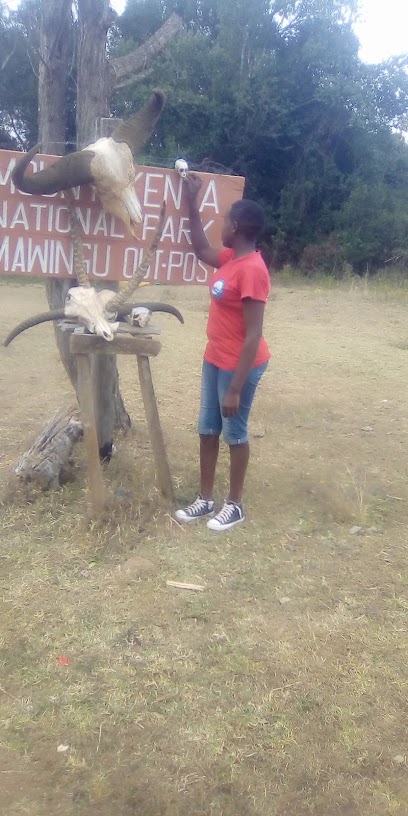
NDEKE House
Explore the rich cultural heritage and artistic spirit of Kenya at NDEKE House in Kevote, a must-visit tourist attraction.

Essential places to dine
Trout Tree Restaurant
Discover Trout Tree Restaurant in Nanyuki – where exquisite cuisine meets nature's beauty along the Burguret River.
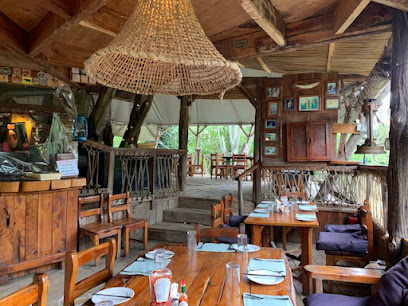
Barney's Bar and Restaurant
Experience exquisite dining at Barney's Bar and Restaurant with stunning views of Mt. Kenya in Nanyuki.
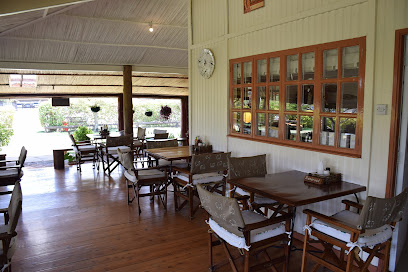
Gawanaz Grill Makutano
Discover Gawanaz Grill in Nanyuki: where exquisite grilled dishes meet stunning views on Mount Kenya's slopes.
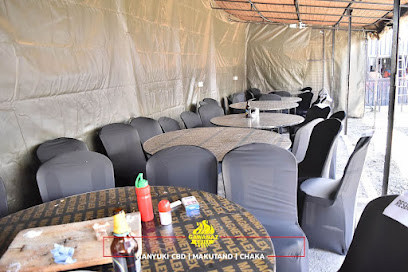
Bantu Lodge
Experience authentic Kenyan cuisine at Bantu Lodge in Nyeri amidst breathtaking landscapes and warm hospitality.
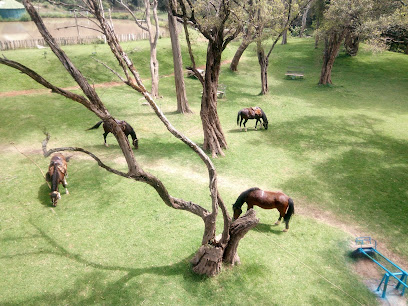
mlimaview gardens
Experience exquisite grilled flavors in a stunning garden setting at Mlimaview Gardens – your ultimate dining destination in Kenya.
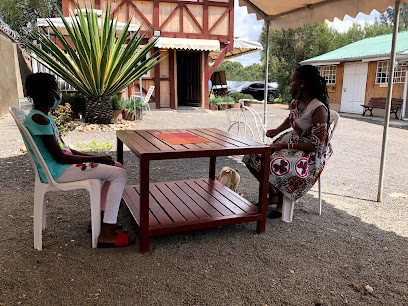
The Nook Cafe & Bar
Discover delightful culinary experiences at The Nook Cafe & Bar in Nanyuki – where great food meets vibrant ambiance.
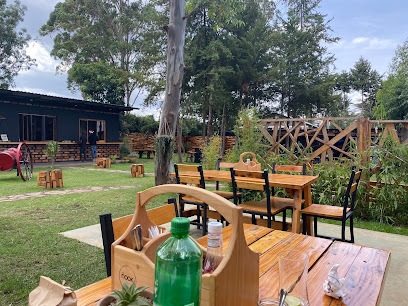
Angiri Camp,Nanyuki
Experience adventure and relaxation at Angiri Camp in Nanyuki - your perfect getaway amidst stunning natural beauty.
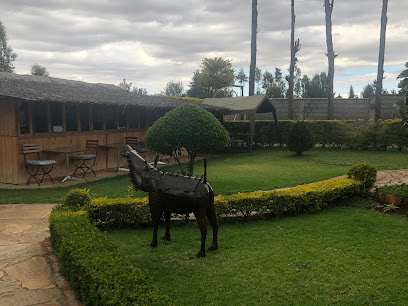
Nyama Choma Village Nanyuki
Savor the essence of Kenya at Nyama Choma Village Nanyuki - your destination for authentic grilled meat experiences.
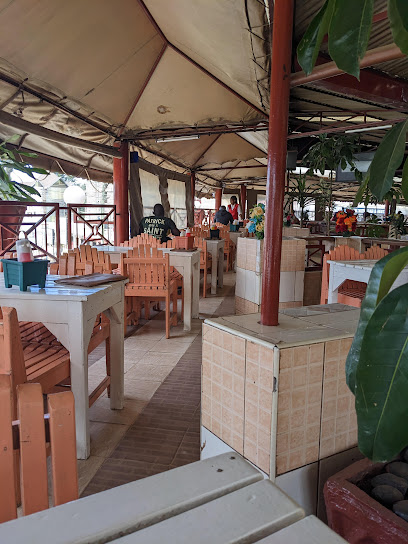
Springs BBQ RESTAURANT
Experience authentic Kenyan flavors at Springs BBQ Restaurant – where mouthwatering barbecue meets vibrant local culture.
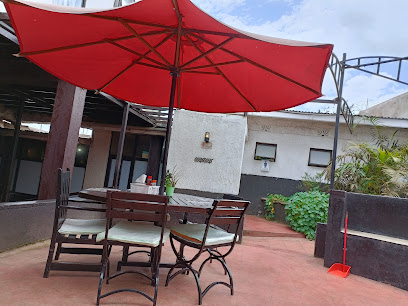
Airmens Mess
Discover authentic Kenyan cuisine at Airmens Mess in Nanyuki – where every meal tells a story!
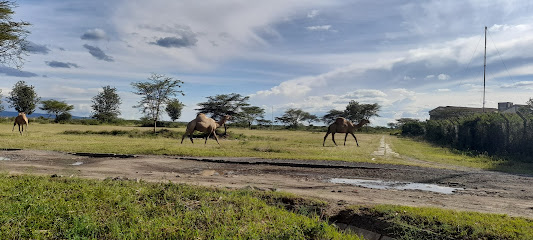
Urban Smoke Kenya
Experience the best of Indian and international cuisine at Urban Smoke Kenya – your go-to spot in Nanyuki for delicious food and vibrant atmosphere.
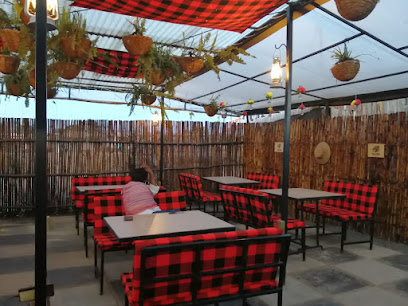
ANELE GARDEN RESTAURANT
Experience authentic African cuisine at Anele Garden Restaurant in Maua, where local flavors meet a warm and inviting atmosphere.
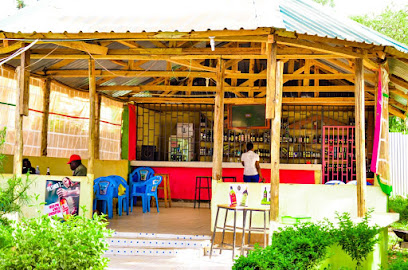
Mt kenya leisure cave
Experience exquisite dining amidst breathtaking landscapes at Mt Kenya Leisure Cave – a hidden gem in Maua's serene wilderness.
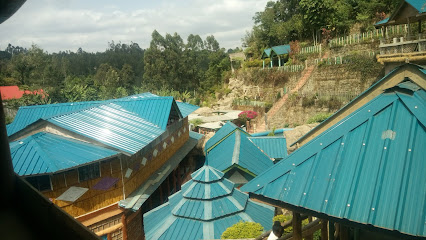
Le Rustique Restaurant
Experience exquisite Mediterranean flavors at Le Rustique Restaurant in Nanyuki, where every meal is a delightful culinary journey.
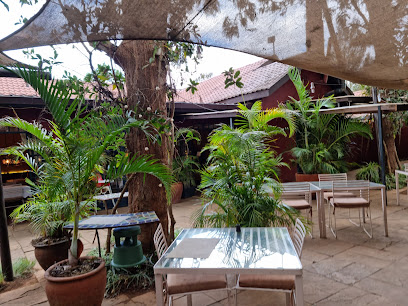
Mountain Valley Resort - Kimunye
Experience exquisite dining at Mountain Valley Resort - Kimunye amidst stunning landscapes and vibrant flavors.
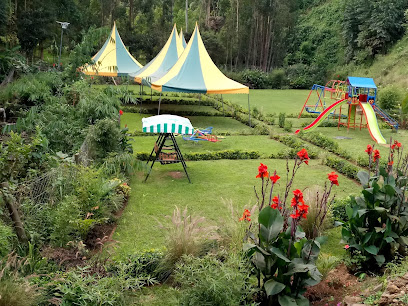
Markets, malls and hidden boutiques
Mt Kenya Peaks View
Experience the awe-inspiring views of Mt. Kenya, a breathtaking natural wonder perfect for nature lovers and adventure seekers alike.
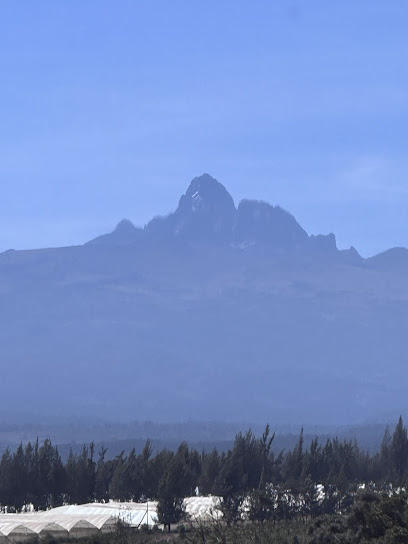
Agri-Biotech Farm International
Explore sustainable agriculture at Agri-Biotech Farm International in Mt. Kenya, where innovation meets nature in a breathtaking setting.
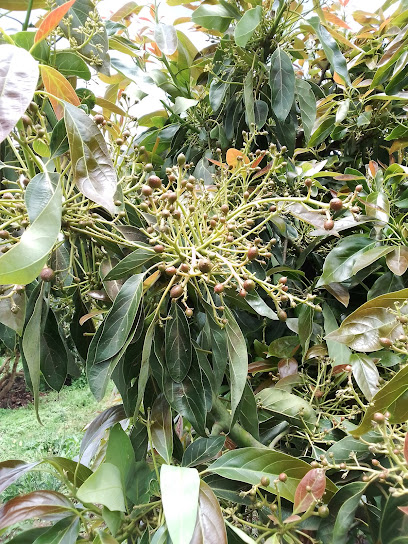
ALL IN ONE MALL
Explore the vibrant offerings of All In One Mall, your ultimate destination for authentic oriental goods and cultural treasures.

Gallery beauty boutique
Explore contemporary women's fashion and local craftsmanship at Gallery Beauty Boutique on Reara Road, a must-visit in Kenya.

Senate Shop
Experience the essence of Kenya at Senate Shop - your go-to general store for unique local goods and cultural treasures.

Picnics Kenya
Discover the best outdoor clothing and equipment for your adventures at Picnics Kenya, where nature meets quality gear in the heart of Kenya.
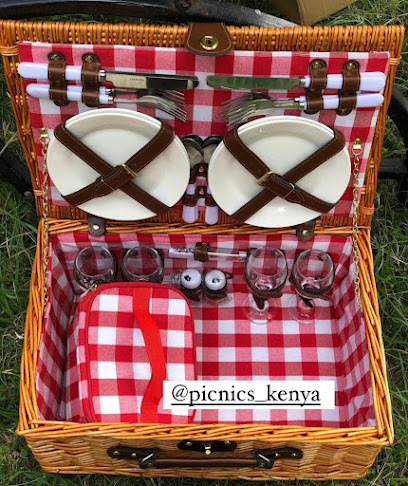
M
Discover the vibrant grocery stores of Kenya, where fresh produce and local flavors create a unique culinary experience.

tana river county
Discover Tana River County's stunning landscapes, rich culture, and thrilling adventures in the heart of Kenya.
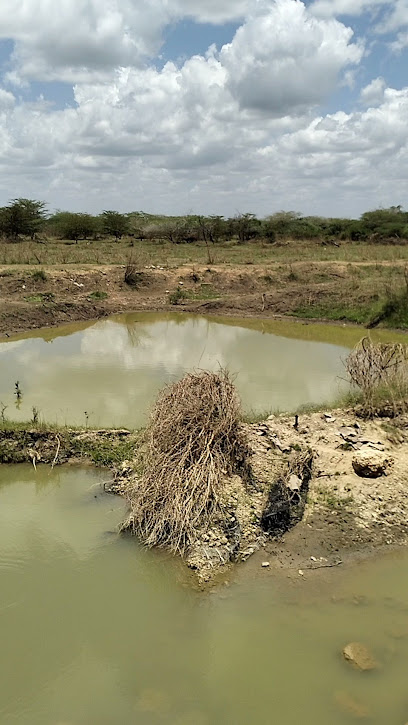
Mumoni
Explore a diverse selection of literature and local crafts at Mumoni, a charming book store in the heart of Gatunga perfect for book lovers and tourists alike.

Jackie Shop
Explore the vibrant local culture at Jackie Shop in Belgut, your go-to destination for essentials and unique souvenirs.

Pazian
Explore Pazian in Gatunga for authentic Kenyan crafts and a unique shopping experience that captures the essence of local culture.

Julie's shop
Experience local flavor and culture at Julie's Shop, your go-to grocery store in Drumvale, Kenya.

Ole Tee Base
Explore the vibrant fashion scene at Ole Tee Base, where local craftsmanship meets contemporary style in Gatunga, Kenya.

Kithyoko
Explore Kithyoko in Gatunga for unique local crafts and a taste of Kenyan culture, perfect for souvenirs and memorable experiences.

Muthoni's Shop
Discover the essential convenience of Muthoni's Shop in >'[,'.'KMKOL, where local culture meets everyday needs for every traveler.

Essential bars & hidden hideouts
Drips Pub
Discover the lively spirit of Kianjai at Drips Pub, where affordable drinks and a welcoming atmosphere await.
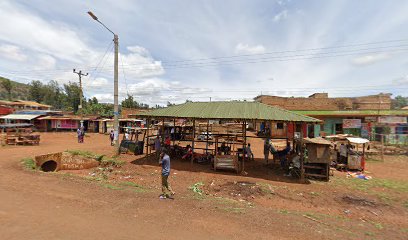
Makuti Bar
Discover the vibrant Makuti Bar in Timau, where relaxation meets local culture, and every drink tells a story.
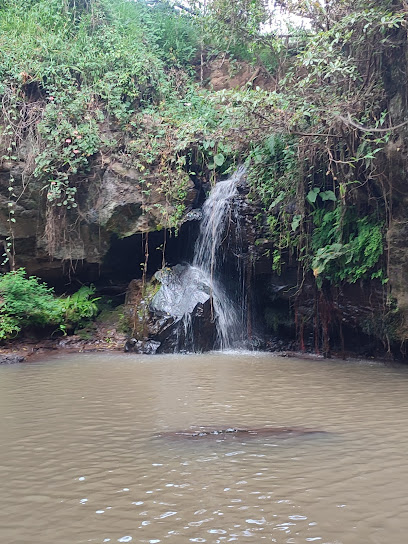
Mackinders Hut
Experience the flavors of Kenya at Mackinders Hut, where exquisite cuisine meets breathtaking natural beauty in a serene dining atmosphere.
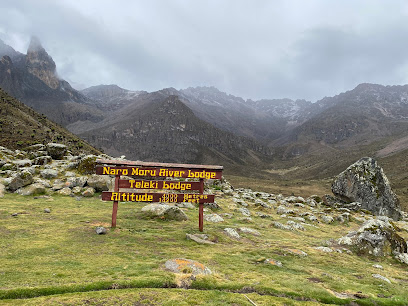
ZANZI BAR
Experience the vibrant nightlife at Zanzi Bar in Mitunguu, where refreshing drinks and a lively atmosphere await you.
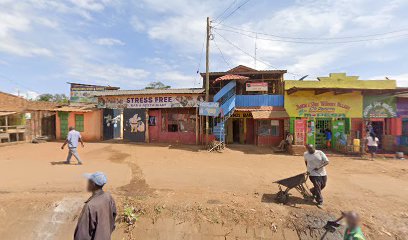
Club Buffalo
Experience the vibrant nightlife at Club Buffalo in Nyeri; a lively bar offering great drinks, music, and a welcoming atmosphere for all.

ZEBRA BAR AND RESTAURANT
Discover the flavorful delights of Zebra Bar and Restaurant, a top grill destination in Kwa Makara, perfect for food enthusiasts and social gatherings.
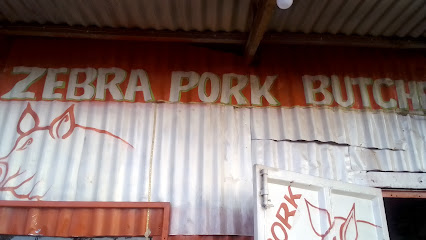
CLASSIC BAR
Discover the vibrant atmosphere of Classic Bar, your perfect stop before exploring the wonders of Mount Kenya National Park.
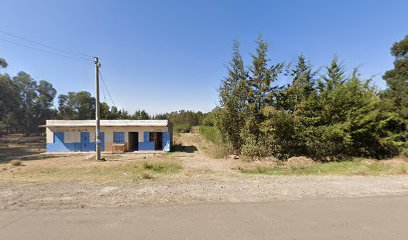
Luna Park Bar & Restaurant.
Discover the vibrant flavors of Kenya at Luna Park Bar & Restaurant, where great food meets a lively atmosphere in the heart of the city.
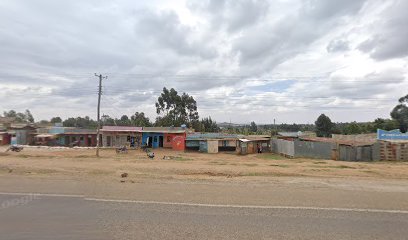
Mt Kenya View Point Bar Rest
Discover breathtaking views and local flavors at Mt Kenya View Point Bar Rest, the perfect retreat in the heart of Kenya's stunning landscape.
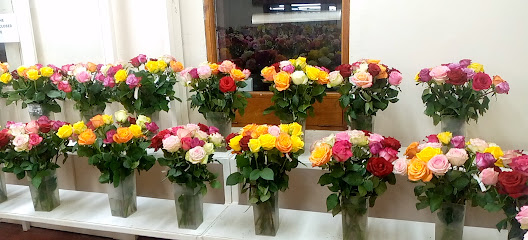
Kim's Pub
Experience the lively nightlife and local culture at Kim's Pub, a vibrant bar perfect for unwinding and making new friends.
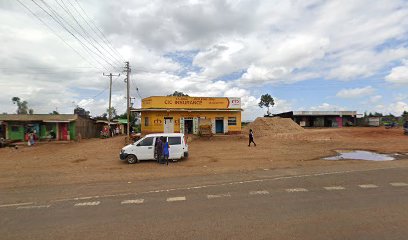
Lion pub
Experience the vibrant atmosphere of The Lion Pub in Kieni, where local culture meets refreshing drinks and friendly faces.

BECO PUB
Discover the lively atmosphere of Beco Pub in Nkubu, where locals and tourists gather for refreshing drinks and unforgettable experiences.
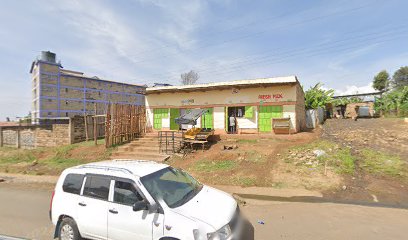
Friend's Corner Bar
Discover the lively ambiance of Friend's Corner Bar in Nkubu, where locals and visitors mingle over drinks and good times.
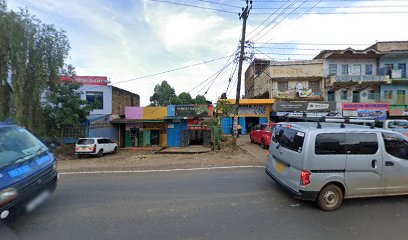
Kwa-BAIKOKO Liquor land Bar and Restaurant
Experience the lively charm of Kwa-BAIKOKO Liquor Land Bar and Restaurant in Gatunga, where local culture meets a vibrant atmosphere.
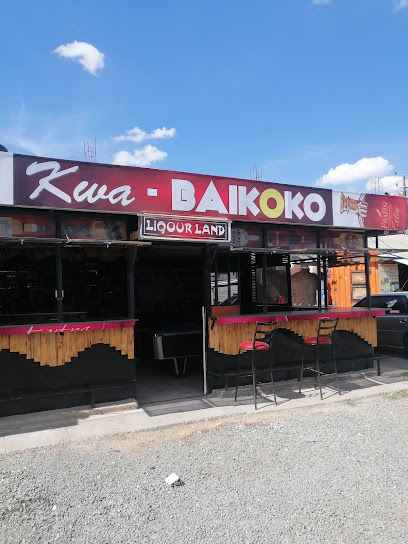
CAMP DAVID BAR
Discover the lively spirit of Kenya at Camp David Bar, where entertainment meets exceptional drinks in a vibrant atmosphere.
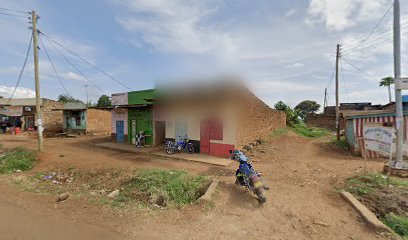
Local Phrases about Mount Kenya National Park
-
- HelloMwai
[m-wa-ee] - GoodbyeKwaheri
[kwa-he-ri] - YesEe
[ee] - NoHapana
[ha-pa-na] - Please/You're welcomeTafadhali
[ta-fa-dha-li] - Thank youAsante
[a-san-te] - Excuse me/SorrySamahani
[sa-ma-ha-ni] - How are you?U hia?
[u hee-a] - Fine. And you?Mzuri. Na wewe?
[m-zu-ri na we-we] - Do you speak English?Unaongea Kiingereza?
[u-na-on-ge-a kin-ge-re-za] - I don't understandSielewi
[si-e-le-wi]
- HelloMwai
-
- I'd like to see the menu, pleaseNingependa kuona menyu, tafadhali
[ning-ge-pen-da ku-o-na men-yu ta-fa-dha-li] - I don't eat meatSili nyama
[si-li nya-ma] - Cheers!Afya!
[af-ya] - I would like to pay, pleaseNingependa kulipa, tafadhali
[ning-ge-pen-da ku-li-pa ta-fa-dha-li]
- I'd like to see the menu, pleaseNingependa kuona menyu, tafadhali
-
- Help!Msaada!
[m-sa-a-da] - Go away!Nenda zako!
[nen-da za-ko] - Call the Police!Piga simu polisi!
[pi-ga si-mu po-li-si] - Call a doctor!Piga simu daktari!
[pi-ga si-mu dak-ta-ri] - I'm lostNimepotea
[ni-me-po-te-a] - I'm illNinaumwa
[ni-na-um-wa]
- Help!Msaada!
-
- I'd like to buy...Ningependa kununua...
[ning-ge-pen-da ku-nu-nu-a] - I'm just lookingNatazama tu
[na-ta-za-ma tu] - How much is it?Bei ni ngapi?
[bei ni nga-pi] - That's too expensiveHiyo ni ghali sana
[hi-yo ni gha-li sa-na] - Can you lower the price?Unaweza kupunguza bei?
[u-na-we-za ku-pun-gu-za bei]
- I'd like to buy...Ningependa kununua...
-
- What time is it?Ni saa ngapi?
[ni sa-a nga-pi] - It's one o'clockNi saa moja
[ni sa-a mo-ja] - Half past (10)Saa tano na nusu
[sa-a ta-no na nu-su] - MorningAsubuhi
[a-su-bu-hi] - AfternoonMchana
[m-cha-na] - EveningJioni
[jo-ni] - YesterdayJana
[ja-na] - TodayLeo
[le-o] - TomorrowKesho
[ke-sho] - 1Moja
[mo-ja] - 2Mbili
[m-bi-li] - 3Tatu
[ta-tu] - 4Nne
[n-ne] - 5Tano
[ta-no] - 6Sita
[si-ta] - 7Saba
[sa-ba] - 8Nane
[na-ne] - 9Tisa
[ti-sa] - 10Kumi
[ku-mi]
- What time is it?Ni saa ngapi?
-
- Where's a/the...?Iko wapi...?
[i-ko wa-pi] - What's the address?Ni anwani gani?
[ni an-wa-ni ga-ni] - Can you show me (on the map)?Unaweza kunionyesha (kwenye ramani)?
[u-na-we-za ku-ni-on-ye-sha kwe-ne ra-ma-ni] - When's the next (bus)?Basi la pili litakuja lini?
[ba-si la pi-li li-ta-ku-ja li-ni] - A ticket (to ....)Tiketi (kwenda ....)
[ti-ke-ti kwen-da]
- Where's a/the...?Iko wapi...?
History of Mount Kenya National Park
-
Mount Kenya, standing at 5,199 meters, is the second-highest peak in Africa. This ancient stratovolcano was formed approximately three million years ago during the Pleistocene epoch. The mountain has long been revered by the Kikuyu people, who believe it to be the home of their supreme deity, Ngai. According to Kikuyu mythology, Ngai created the mountain as his earthly abode, and its peaks are considered sacred.
-
The first recorded European to see Mount Kenya was German missionary Johann Ludwig Krapf in 1849. However, it wasn't until 1899 that the British geologist John Walter Gregory conducted the first scientific expedition to the mountain. In 1899, British geographer Halford Mackinder led an expedition that resulted in the first successful ascent of Mount Kenya's Batian peak, the highest summit, marking a significant moment in the mountain's exploration history.
-
Mount Kenya National Park was established in 1949 by the colonial government to protect the region's unique ecosystems and biodiversity. Covering an area of 715 square kilometers, the park includes diverse habitats ranging from alpine meadows to bamboo forests. The park's establishment aimed to preserve the mountain's natural beauty and to promote it as a destination for scientific research and eco-tourism.
-
In 1997, Mount Kenya National Park and the surrounding forest reserve were designated a UNESCO World Heritage Site. This recognition highlighted the area's exceptional natural beauty and its importance as a biodiversity hotspot. The site is renowned for its remarkable landscapes, including glaciers, tarns, and rugged peaks, as well as its rich flora and fauna, such as the endangered Mount Kenya bush viper and the unique high-altitude vegetation.
-
Mount Kenya played a symbolic and strategic role in Kenya's struggle for independence from British colonial rule. The Mau Mau fighters, who led the armed resistance against the colonial government in the 1950s, used the dense forests around Mount Kenya as their base. The mountain provided a natural stronghold and sanctuary for the freedom fighters, and its rugged terrain offered protection against colonial forces.
-
Today, Mount Kenya National Park is not only a major tourist attraction but also a critical site for conservation efforts. Organizations such as the Kenya Wildlife Service (KWS) and the Mount Kenya Trust work tirelessly to protect the park's ecosystems from threats such as deforestation, poaching, and climate change. These efforts include reforestation projects, anti-poaching patrols, and community engagement initiatives aimed at promoting sustainable livelihoods for local communities.
Mount Kenya National Park Essentials
-
Mount Kenya National Park is located in central Kenya, approximately 150 kilometers (93 miles) north-northeast of Nairobi. The nearest major airport is Jomo Kenyatta International Airport (NBO) in Nairobi. From Nairobi, you can take a domestic flight to Nanyuki Airstrip or drive to the park. The drive takes about 4-5 hours via the A2 highway. Alternatively, you can take a bus or hire a private taxi from Nairobi to towns like Nanyuki or Naro Moru, which serve as gateways to the park.
-
Within the park, transportation options are limited. Most visitors hire a 4x4 vehicle to navigate the park's rough terrain. Organized tours often include transportation. For those trekking, porters and guides are available for hire. If you're staying in nearby towns like Nanyuki, taxis and matatus (shared minibuses) can be used for short distances. Car rentals are available but make sure to rent a vehicle suitable for off-road conditions.
-
The official currency in Kenya is the Kenyan Shilling (KES). Credit and debit cards are accepted in most hotels, lodges, and larger restaurants, but it's advisable to carry cash for smaller establishments and park entry fees. ATMs are available in towns like Nanyuki, but it's wise to withdraw sufficient cash before heading into the park. Foreign exchange services are also available in major towns and airports.
-
Mount Kenya National Park is generally safe for tourists, but standard precautions should be taken. Avoid isolated areas and do not trek alone. Always inform someone of your trekking plans and expected return time. Petty crime, such as pickpocketing, can occur in nearby towns, so keep your belongings secure. There are no specific high-crime areas targeting tourists within the park, but always stay vigilant.
-
In case of emergency, contact the Kenya Wildlife Service (KWS) rangers who patrol the park. For medical emergencies, the nearest hospitals are in Nanyuki and Nyeri. The emergency phone numbers in Kenya are 999 or 112 for police, fire, and medical assistance. It's advisable to have comprehensive travel insurance that includes coverage for medical evacuation. Keep a list of important contacts and emergency numbers handy.
-
Fashion: Do wear layers and sturdy, waterproof hiking boots. Avoid flashy jewelry and dress modestly. Religion: Do respect local customs and traditions. If visiting local communities, dress modestly and ask for permission before taking photos. Public Transport: Do use registered taxis and avoid traveling at night. Don't use unmarked or unofficial transport services. Greetings: Do greet people with a handshake and a smile. It's polite to ask about someone's well-being before getting to the point. Eating & Drinking: Do try local dishes like nyama choma (roast meat) and ugali (maize porridge). Don't drink tap water; always use bottled or treated water.
-
To experience Mount Kenya National Park like a local, consider engaging with local guides who can offer insights into the park's history and ecology. Visit local markets in Nanyuki to purchase fresh produce and handmade crafts. Participate in community-based tourism activities, such as cultural tours with the Kikuyu and Maasai communities. For an authentic experience, stay in eco-lodges that support local conservation efforts.
Nearby Cities to Mount Kenya National Park
-
Things To Do in Nairobi
-
Things To Do in Nakuru
-
Things To Do in Eldoret
-
Things To Do in Kisumu
-
Things To Do in Kitale
-
Things To Do in Moshi
-
Things To Do in Arusha
-
Things To Do in Mbale
-
Things To Do in Malindi
-
Things To Do in Jinja
-
Things To Do in Lamu
-
Things To Do in Mombasa
-
Things To Do in Diani Beach
-
Things To Do in Kampala
-
Things To Do in Entebbe











